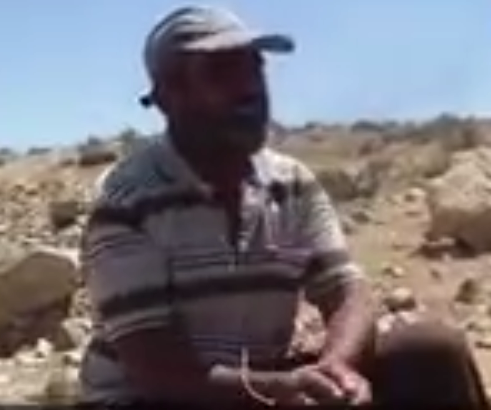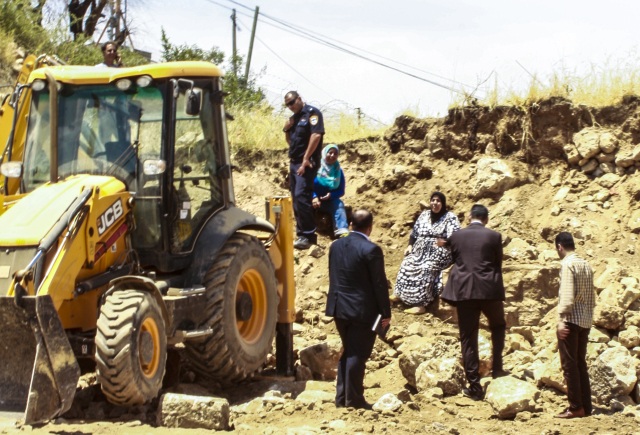Tag: Settler harassment
-
Interview with 15-year-old Awne Shamsiyeh: “the camera is like a weapon, so I can resist non-violently”
29th June 2014 | International Solidarity Movement, Khalil Team | Tel Rumeida, Occupied Palestine In Al-Khalil (Hebron) in the Tel Rumeida area, 15-year old Awne Shamsiyeh lives with his family. After the Hebron Agreement (1997), the city was divided into two areas, H1 (supposedly under full Palestinian Authority civil and security control) and H2, (under full Israeli military civil…
-
VIDEO: Palestinian shepherd detained by Israeli soldiers
29th June 2014 | Operation Dove | Saddith Thala, Occupied Palestine On June 27th, Israeli soldiers detained a Palestinian shepherd from the South Hebron Hills village of Saddith Thala. He was accused of throwing stones towards a setter’s car, passing on the Bypass road 317. He was released, as there was no evidence to support the charges. A…
-
A Palestinian story of resistance: The Abu Haikal family
31th May 2014 | Christian Peacemakers Team | Hebron, Occupied Palestine With only a sliver of their land left to protect, having their entire lot of land encircled by Israeli settlements, Faryel and Arwa Abu Haikal climbed over a pile of rubble and boulders and stopped the Israeli bulldozer from shearing further into their property, dumping their…



